POLAR UPdate Issue 15, Summer 2020
COVID-19 impacts on POLAR operations and programming

As the novel coronavirus (COVID-19) situation evolves in Canada and abroad, Polar Knowledge Canada (POLAR) continues to take guidance from the Public Health Agency of Canada and work with territorial partners and the Hamlet of Cambridge Bay, Nunavut, to develop appropriate response measures. The health and safety of staff, collaborators, elders and other community members across the North remains POLAR’s top priority.
Since the beginning of the pandemic, there have been varying levels of disruptions to 2020 field activities in natural, physical and social sciences to limit the potential spread of COVID-19 into remote communities across Canada’s North. While visiting researchers remain unable to carry out their work in the North due to travel restrictions, some community-led research activities have been moving forward as intra-territorial restrictions ease. Throughout this period of uncertainty, POLAR staff are advancing core research and engagement activities from home and are working towards a staged return to the workplace.
Based on current health and safety recommendations, POLAR has made the following adjustments to its program delivery as they relate to the operations at the Canadian High Arctic Research Station (CHARS) campus:
- The CHARS campus, located in Cambridge Bay, will remain closed to the public for the remainder of the 2020 field season and throughout Fall 2020. Accordingly, all field research and in-person engagement activities at the CHARS campus are suspended.
- It is anticipated that in-person engagement activity and field research will gradually resume, and the CHARS campus will re-open to the public sometime in 2021 as public health advisories and travel restrictions permit.
- For individuals and organizations planning to conduct research or use public space and accommodations at the CHARS campus in 2021, POLAR will provide an update in early 2021 about submission deadlines and the assessment process, as we continue to monitor evolving conditions and assess risks.
- Please note that the above timelines are subject to change, should there be an update to the Public Health guidance.
POLAR will continue to work closely with its grant and contribution recipients to assess the impacts COVID-19 may have on the delivery of their project activities. POLAR’s funding agreements provide some flexibility to accommodate situations where activities need to be modified or, in some cases, cancelled entirely. POLAR will assess each situation on a case-by-case basis. If your project is impacted by COVID-19, either directly or indirectly, it is important to notify us as soon as possible. Please contact the Grants and Contributions Unit at grants-contributions@polar.gc.ca to discuss your specific case.
For all questions regarding the COVID-19 impacts on POLAR operations and planning, please contact us at info@polar-polaire.gc.ca.
POLAR 2020-25 Science and Technology Framework and Strategic Plan
POLAR has recently launched its 2020-25 Science and Technology (S&T) Framework and Strategic Plan. The Strategic Plan will help POLAR align its resources and objectives with its long-term vision, and it provides the context for POLAR’s five-year S&T Framework. The Framework sets out three goals:
- improving knowledge of dynamic northern terrestrial, freshwater and marine ecosystems in the context of rapid change;
- increasing understanding of the connections between northern community wellness and environmental health; and
- advancing sustainable energy, technology and infrastructure solutions for the unique environmental, social and cultural conditions in the North.
Wide consultation was central to the development of these two documents. The public had several opportunities to share their input through a survey open to all Canadians, as well as through targeted meetings with northern organizations. POLAR received close to 380 surveys from across the country, 30% of which were from Northerners; and 75 northern organizations in 17 communities participated in discussions with POLAR staff. Once the draft S&T Framework was ready the public was invited to review it, and POLAR refined the document based on the valuable feedback received.
POLAR will co-develop the plan to implement the S&T Framework. This will involve further discussions with Indigenous Northerners in order to gain a better understanding of their perspectives on knowledge gaps and how to address them effectively, and to identify opportunities to work together.
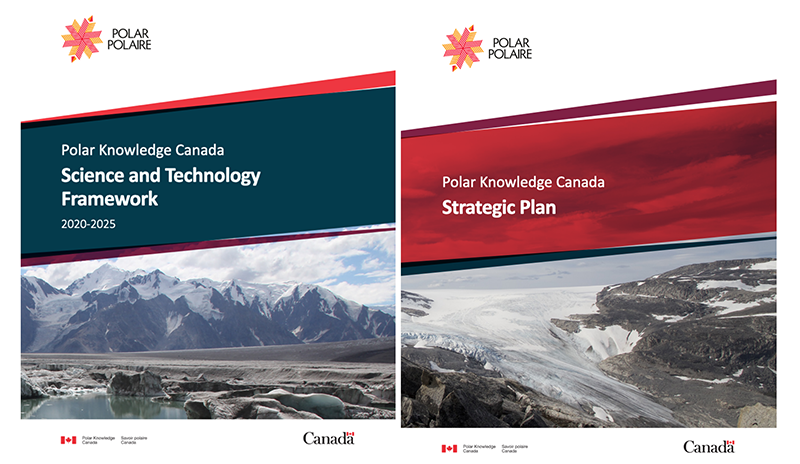
Northern Scientific Training Program photos featured on Instagram
The Northern Scientific Training Program (NSTP) is currently front and centre on POLAR’ Instagram channel. The NSTP has been a pillar of northern research in Canada since the Government of Canada established it in 1961. Administered by POLAR since 2015, the program supports universities in providing scientific training that gives students professional experience in the Canadian North and encourages them to develop a commitment to northern work. Every year it provides supplementary funding to over 350 students from over 35 universities and northern colleges across Canada.
Since 2014 students who have received NSTP funding have been submitting photographs of their work in the field. Check out some of those beautiful photos on POLAR’s Instagram page!
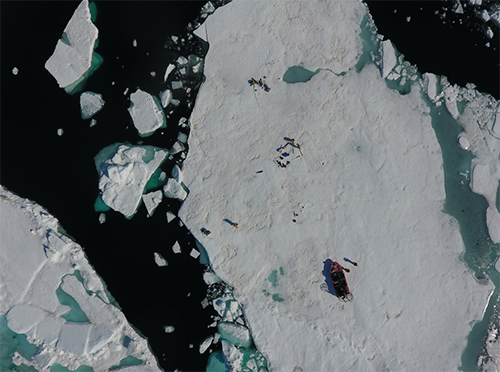
POLAR wildlife researcher co-authors new paper in Arctic Science
POLAR wildlife researcher and veterinarian Matilde Tomaselli co-authored a recent paper in the Canadian academic journal Arctic Science on bringing Indigenous and scientific knowledge together in wildlife conservation research. Assessing the status of wildlife populations – their numbers, trends, breeding success and the threats they face over time – is fundamental to wildlife conservation and management. Indigenous knowledge and science working together can provide a more complete understanding of a population’s conservation status, and can bridge gaps in scientific monitoring in remote and sparsely populated areas. In this paper Matilde and her colleagues propose a practical “traffic light” approach to make more effective use of multiple knowledge sources for wildlife conservation status assessment. Learn more about this publication here: https://doi.org/10.1139/AS-2019-0019
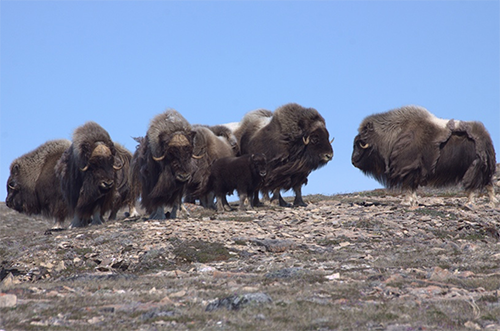
Celebrating the 2020-2021 POLAR award winners
Presented in partnership with the Canadian Northern Studies Trust, POLAR’s student awards and scholarships recognize excellence in northern studies. POLAR congratulates the 2020-2021 recipients of the POLAR Scholarship, the Northern Resident Scholarships, and the Northern Resident Awards. We wish these outstanding students continued achievement and fulfilment as they develop their skills and help increase knowledge and understanding of Canada’s North in all its dimensions.
Polar Knowledge Canada Scholarship ($10,000)
Awarded to an outstanding doctoral student in polar studies.
Identifying iceberg sources, drift patterns, and potential risk in Canadian waters
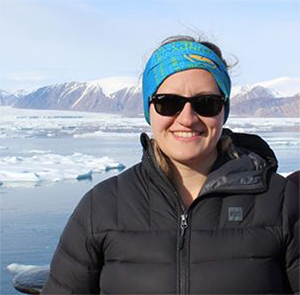
Assessing the fate of returning upper Yukon River Chinook Salmon
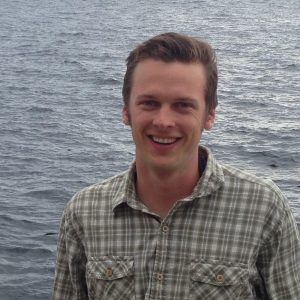
POLAR Northern Resident Scholarship ($10,000)
For outstanding northern Canadian students enrolled in a post-secondary graduate program (PhD or Master’s) at a Canadian college or university, or enrolled in a Northern College.
Structural evolution of the western margin of the South Rae craton, Northwest Territories
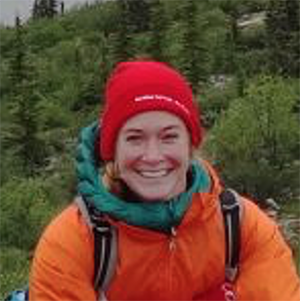
The geochemical responses of Arctic freshwater systems to regional variability in permafrost thaw across the Canadian Arctic
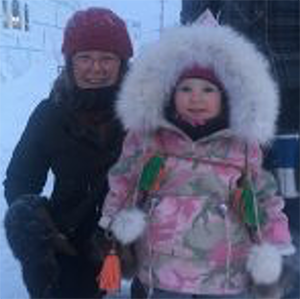
Formation and drainage of glacier-dammed Donjek Lake, Yukon

Co-management and pathways for Inuit well-being

Qatiktalik: Nexus of Colonial Encounters

POLAR Northern Resident Scholarship ($10,000)
Presented to outstanding northern Canadian students enrolled in a post-secondary undergraduate program at a Canadian college or university.
Grounded in the North – Enhancing mechanisms of accountability for the extractive industry in Yukon
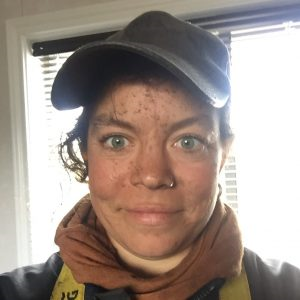
Incumbent defeats in the Northwest Territories
